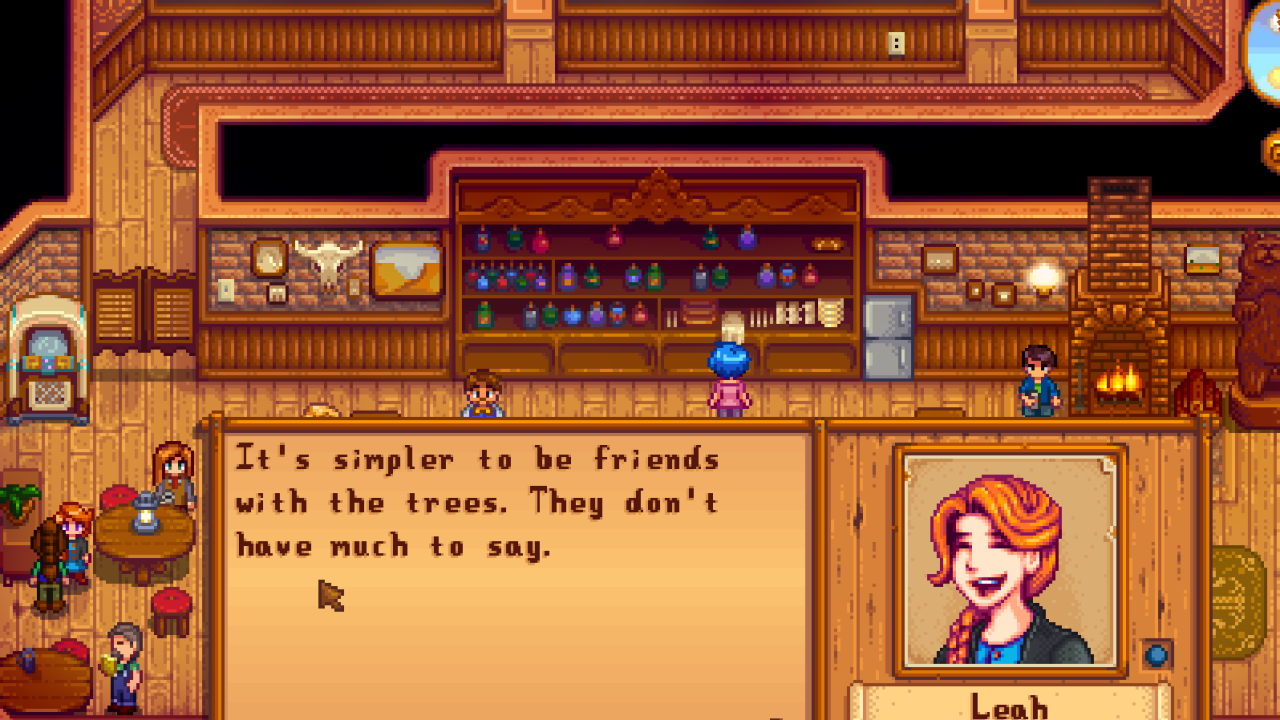While video games are typically concerned as a “magic circle”, a space that is for leisure, entertainment and separated from the workspace in the contemporary social context, Stardew Valley disrupts such differentiation by blending the play and work in the game. The game normalizes economic thought and action, and fosters entrepreneurial ways of play within the game. While becoming common sense is the goal of all ideologies that seek to appear as a natural order of things, Neoliberalism as an ideology also aims to make economic understanding of thought and action the “commonsense” of all thought and action. The notion of the entrepreneurial self is derived from the work of Foucault, who states that “homo economicus is an entrepreneur, an entrepreneur of himself…being for himself his
own capital, being for himself his own producer, being for himself the source of his earnings.” (Foucault, 226) In this blog, I will be looking at the mechanics as well as the reward system in Stardew Valley to analyze how it embraces a neoliberal ideology. (Note: This blog is only based on hours of play in Stardew Valley and is only based on my own personal play experience)
Firstly, the shipping system (Yes, the box right near your house) encourages incoming new players to value items in an economic way. I still remember the first day I came out of my house and saw this wood bin right in front of me. According to mayor Lewis, the gold shipping bin allows me to quickly sell items. In other words, it is an automatic reward machine that evaluates your everyday activity and income. One could put whatever into the bin and at the end of the day, an interface would pop up and show the economic value of each item one put into the bin. While in the early stage of the game, the player does not have much knowledge about which stores to sell and buy, the shipping system often becomes their first choice of gaining income and knowing what sells better. By adding a numerical monetary value to the items in the game, the shipping system trains players into thinking about what is the quickest way to gain income? What is the most efficient production mode? The players thus adapt themselves to game economies and think of themselves as useful and productive only in the economic sense.

Secondly, the limited health and energy in the game per day further push the player into becoming a supposedly rational subject under the socio-economic system that will seek to maximize their utility as a consumer and producer. Since one only has limited resources (and thus, limited options per day), it is natural for the player to reflect on the objective in the game. What is one’s ultimate goal in this game? Have a bigger farm and more animals? Need money. Talk to people and make more friends? Need gifts (or the money to buy the corresponding gifts). Walk around and explore the easter eggs in the game? Need food (or the money to buy food from Pierre’s) Most of the objectives in the games, I would argue, require a material basis, in other words, strong time management and rationalization. When I was playing the game, the one goal I had was to have a kitchen in my house (so that I could fully live on my own, produce and consume in a closed cycle). However, even a kitchen requires me to make 10,000g and chop 450 pieces of wood. Though Stardew Valley does not explicitly tell me that I am in debt, it makes no difference to me between making 10000 g to have a kitchen and having a 10000g debt for an operative house. And it connects to the neoliberal subjectivity in which the players behave, or play, responsibly as they feel as though they are indebted. The players are warned implicitly that any activity should be used productively, while free and unproductive activity would simply make them feel guilty about wasting time.
However, it is also worth mentioning that Stardew Valley does not have a “death” or “game over” state. When the player consumes all the health or energy, he/she would be sent to the clinic (or back to the house). Therefore, it is not that the players are forced to produce or consume in order to maintain their “lives”, but their motivation comes simply from curiosity, experimentation, or self-determined objectives. It is on their way to accomplishing the goals that they fall into a neoliberal game structure and are encouraged to work as “entrepreneurs”.
Written by Yutao Cao
Citations:
Foucault, M., & Senellart, M. (2011). The Birth of Biopolitics Lectures at the College de France, 1978-1979. Palgrave Macmillan.
